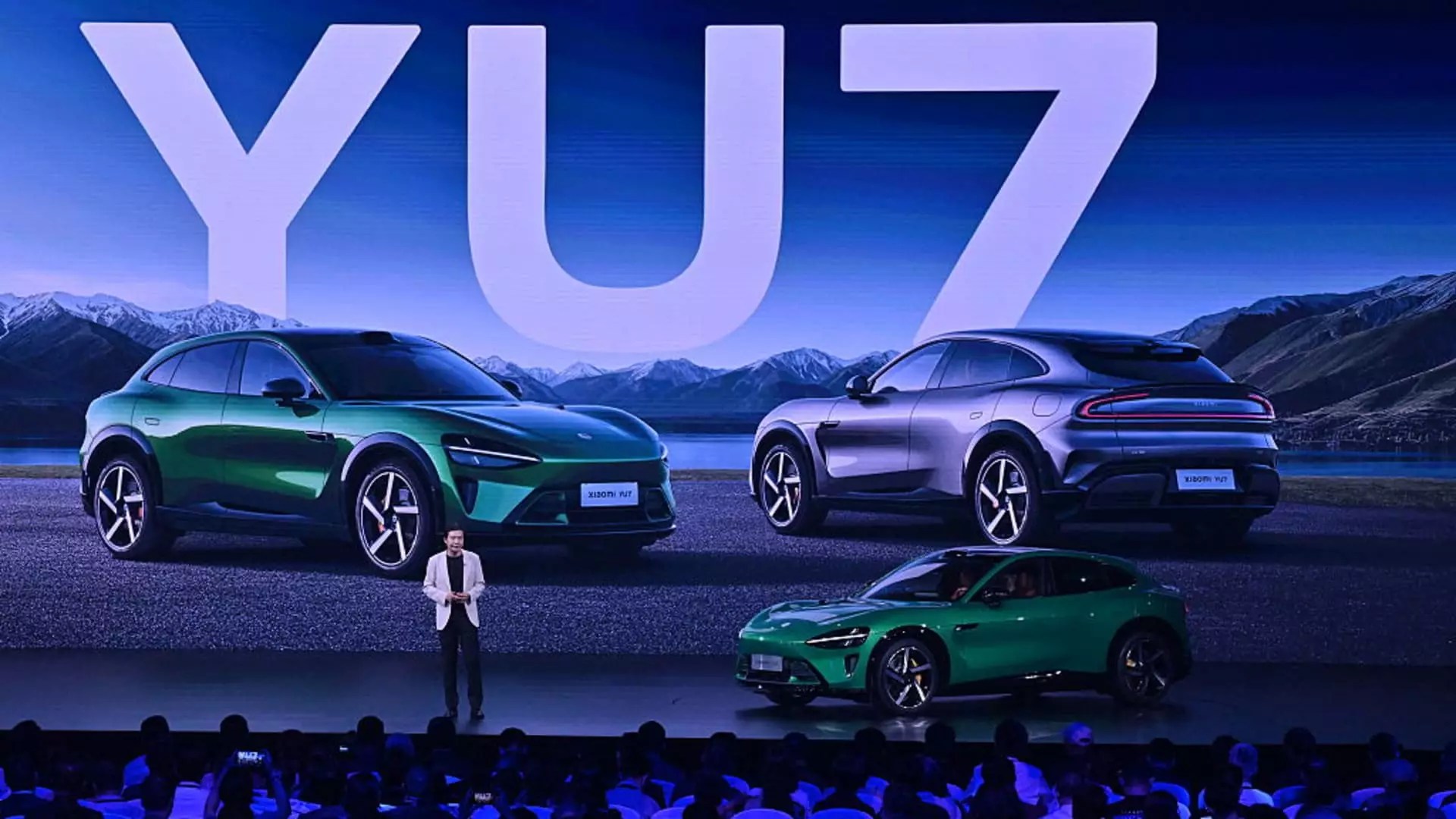The electric vehicle (EV) market in China is not just burgeoning; it is becoming a battleground for some of the world’s most ambitious tech companies, with Xiaomi stepping boldly onto the terrain. Just under a year since launching its first electric vehicle, Xiaomi has unveiled the YU7 SUV, which boasts a driving range that surpasses that of Tesla’s popular Model Y. This aggressive maneuver suggests that Xiaomi is not just trying to make a mark but is poised to disrupt an already competitive landscape. With a reported range of 760 kilometers (472 miles) on a single charge, the YU7 directly challenges consumers’ largest fear regarding EVs: battery life.
Interestingly, while Tesla’s extended-range Model Y claims 719 kilometers, the YU7’s premium positioning could lure tech-savvy and cautious buyers alike. In a society where gadgets and technological efficiency reign supreme, Xiaomi is skillfully weaving its smartphone prowess into the innovative fabric of electric mobility.
Pricing Strategy: A Smart Approach to Beat Competitors
Pricing can make or break a product. Here, Xiaomi seems to tick the right boxes by positioning the YU7 in the 250,000 to 320,000 yuan ($34,700 to $44,420) range. This sets it up as a solid competitor against Tesla’s Model Y, which starts at 263,500 yuan. Analysts from Citi predict that Xiaomi’s pricing strategy, paired with its projected monthly sales of around 30,000 units and an annual estimate of 300,000 to 360,000, reflects a thoughtful approach to undercut competitors without compromising on quality.
While Xiaomi’s established reputation for affordability in technology translates effectively into the automotive sector, it will be vital for the company to maintain an image of quality. Competing at this price point demonstrates Xiaomi’s understanding of the market; they are not just selling cars—they are selling aspiration, innovation, and a slice of a new, tech-driven lifestyle.
Potential Market Impact: Challenging Tesla’s Dominance
Just as Xiaomi aims to encroach upon Tesla’s territory, it stands to reason that the company will face significant hurdles. Despite this, industry analysts like Jeff Chung from Citi are optimistic, forecasting a substantial erosion of Tesla’s market share in China. Such predictions suggest that Xiaomi’s YU7 may not just be an alternative but a formidable alternative—a point that merits attention from both consumers and competitors alike.
Recent data from Autohome indicates that Tesla’s Model Y has been a popular choice but falls behind in the rankings amid more budget-friendly offerings from companies like BYD and Wuling. Is there room for the Xiaomi YU7 in this quagmire of brands? Only if it can persuade consumers that it brings something genuinely unique to the table.
Marketing and Safety Challenges: Navigating the New Norms
Xiaomi’s recent challenges following a tragic accident involving its SU7 sedan underline the complexities of marketing and safety in the EV sector. Following the incident, the Chinese government has mandated stricter advertising protocols around driver-assist technologies. This could have a dual effect: it may limit aggressive marketing claims that could mislead consumers, but it also serves as a stark reminder that any new entrant into the market is under intense scrutiny.
As a center-right individual, I stand with the notion that accountability should be a priority in any industry, and the vulnerability that comes with tech innovation necessitates greater caution. For Xiaomi, this means that transparency in their marketing strategies will be crucial. Communicating genuine capabilities in a compelling way will undoubtedly foster trust in their brand while alleviating consumers’ fears.
The Future: Competition Breeds Innovation
As Xiaomi formally launches the YU7 in July, excitement builds, and so does the competition. With firms like Xpeng also gearing up to release new models, the dynamics in the Chinese EV landscape are set to shift dramatically. This influx of competitors isn’t just about rivalry; it brings forth a period of innovation that could benefit consumers substantially.
Another wave of choices and improvements may mean that consumers will have better options, enhanced technologies, and more competitive pricing. This dynamic makes the EV market not just a sector for car sales, but an active display of technological progress and consumer empowerment.
Xiaomi’s entry represents more than just one company’s ambition; it signals an ongoing evolution that upholds standards in the face of fierce competition. The coming years will be crucial for companies attempting to solidify their stake in this innovative arena.


Leave a Reply